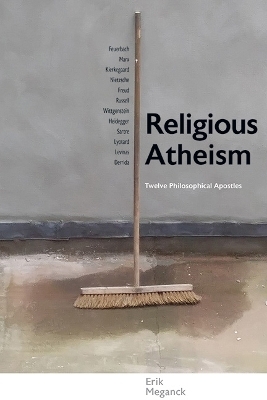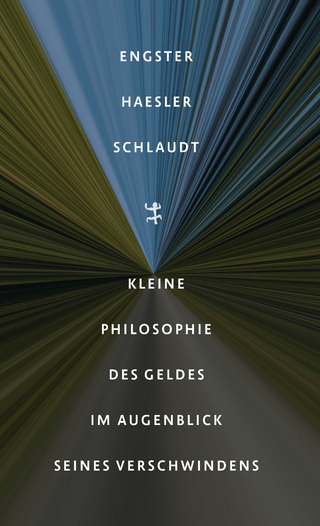
Religious Atheism
Twelve Philosophical Apostles
Seiten
2023
State University of New York Press (Verlag)
978-1-4384-9524-8 (ISBN)
State University of New York Press (Verlag)
978-1-4384-9524-8 (ISBN)
Calls into question the traditional polarity of theism and atheism.
Feuerbach, Marx, Kierkegaard, Nietzsche, Freud, Russell, Wittgenstein, Heidegger, Sartre, Levinas, Lyotard, Derrida. Why were these twelve so-called atheist heavyweights unable to wipe God off the table once and for all? Perhaps they did not intend to. Perhaps their atheism was directed at something other than God and religion. In that case, suggests Erik Meganck, we should look for a more fertile philosophical meaning of atheism to distinguish it from the shallow, more popular definitions of the term. Toward this aim, Meganck offers a rereading of the twelve apostles in this book, who are, he demonstrates, more religious than public opinion often holds. God and religion do not disappear in their work, but each of them tears down a pillar from the grand edifice that is traditional metaphysics. Modern thought has gradually dismantled philosophical and theological systems—“theisms”—which means that we must look for God in the “a-” rather than in “theism.” Meganck's adventurous and daring exploration calls into question the traditional polarity of theism and atheism, leading philosophy and theology away from metaphysical theism, through the death of God, and into a philosophical atheism that does not speak out on the existence of God but hears the Name. This Name opens onto a promise of sense.
Feuerbach, Marx, Kierkegaard, Nietzsche, Freud, Russell, Wittgenstein, Heidegger, Sartre, Levinas, Lyotard, Derrida. Why were these twelve so-called atheist heavyweights unable to wipe God off the table once and for all? Perhaps they did not intend to. Perhaps their atheism was directed at something other than God and religion. In that case, suggests Erik Meganck, we should look for a more fertile philosophical meaning of atheism to distinguish it from the shallow, more popular definitions of the term. Toward this aim, Meganck offers a rereading of the twelve apostles in this book, who are, he demonstrates, more religious than public opinion often holds. God and religion do not disappear in their work, but each of them tears down a pillar from the grand edifice that is traditional metaphysics. Modern thought has gradually dismantled philosophical and theological systems—“theisms”—which means that we must look for God in the “a-” rather than in “theism.” Meganck's adventurous and daring exploration calls into question the traditional polarity of theism and atheism, leading philosophy and theology away from metaphysical theism, through the death of God, and into a philosophical atheism that does not speak out on the existence of God but hears the Name. This Name opens onto a promise of sense.
Erik Meganck is Professor of Philosophy and Christianity at the Faculty for Comparative Study of Religions and Humanism in Antwerp and the International Institute Canon Triest in Ghent.
Introduction
1. Reflection: Feuerbach
2. Opium: Marx
3. Leap: Kierkegaard
4. Dead: Nietzsche
5. Neurosis: Freud
6. Primitive: Russell
7. Silence: Wittgenstein
8. Nothing: Heidegger
9. Unfree: Sartre
10. Face: Levinas
11. Metanarratives: Lyotard
12. Silent: Derrida
Extroduction
Notes
Bibliography
Index
| Erscheinungsdatum | 04.11.2023 |
|---|---|
| Reihe/Serie | SUNY series in Theology and Continental Thought |
| Zusatzinfo | Total Illustrations: 0 |
| Verlagsort | Albany, NY |
| Sprache | englisch |
| Maße | 152 x 229 mm |
| Gewicht | 227 g |
| Themenwelt | Geisteswissenschaften ► Philosophie ► Metaphysik / Ontologie |
| Geisteswissenschaften ► Religion / Theologie | |
| ISBN-10 | 1-4384-9524-2 / 1438495242 |
| ISBN-13 | 978-1-4384-9524-8 / 9781438495248 |
| Zustand | Neuware |
| Haben Sie eine Frage zum Produkt? |
Mehr entdecken
aus dem Bereich
aus dem Bereich
Buch | Hardcover (2024)
Matthes & Seitz (Verlag)
28,00 €
Über konstruktivistisches Denken in der Theologie
Buch | Softcover (2024)
Verlag Herder
58,00 €


